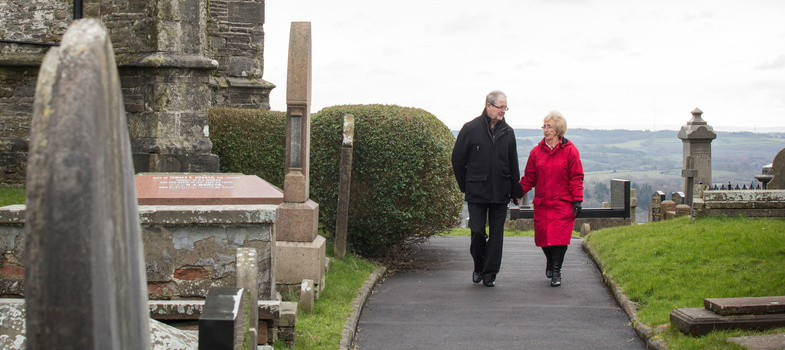4.4 Management of spiritual care
NHS Education for Scotland [Tip: hold Ctrl and click a link to open it in a new tab. (Hide tip)] describes spiritual care in the following way:
“Spiritual care is that care which recognises and responds to the needs of the human spirit when faced with trauma, ill health or sadness and can include the need for meaning, for self worth, to express oneself, for faith and support perhaps for rites or prayer or sacrament, or simply for a sensitive listener. It begins with encouraging human contact in a compassionate relationship and moves in whatever direction need requires.”
In the following video a retired nurse discusses spiritual care at the end of life phase.
Palliative and end of life care takes a holistic view of the person, embraces their spiritual needs and recognises that these may change throughout the progression of the condition. The person may focus more on their ‘spirituality’ as they experience increasing disability and deterioration of their physical health.
A significant part of spiritual care involves listening to individual narratives to gain an understanding of what is important to them before cognitive decline. This information will help you to care for the person in their end of life phase in a more caring and compassionate manner as you are now aware what is important to that person and their family.
It is important that you feel confident and knowledgeable to discuss spiritual issues, but also to recognise your own limits of experience and knowledge and when to signpost to the appropriate pastoral or religious team. Research identifies that spiritual matters are important both to the person and the carers at all stages of the illness progression, but many report unmet spiritual needs (Hasson et al 2010). Cultural and religious differences around end of life care deserve respect, and it is important to recognise increasing diversity of religious beliefs and to facilitate their individual practices and rituals.
4.3.5 Nausea
